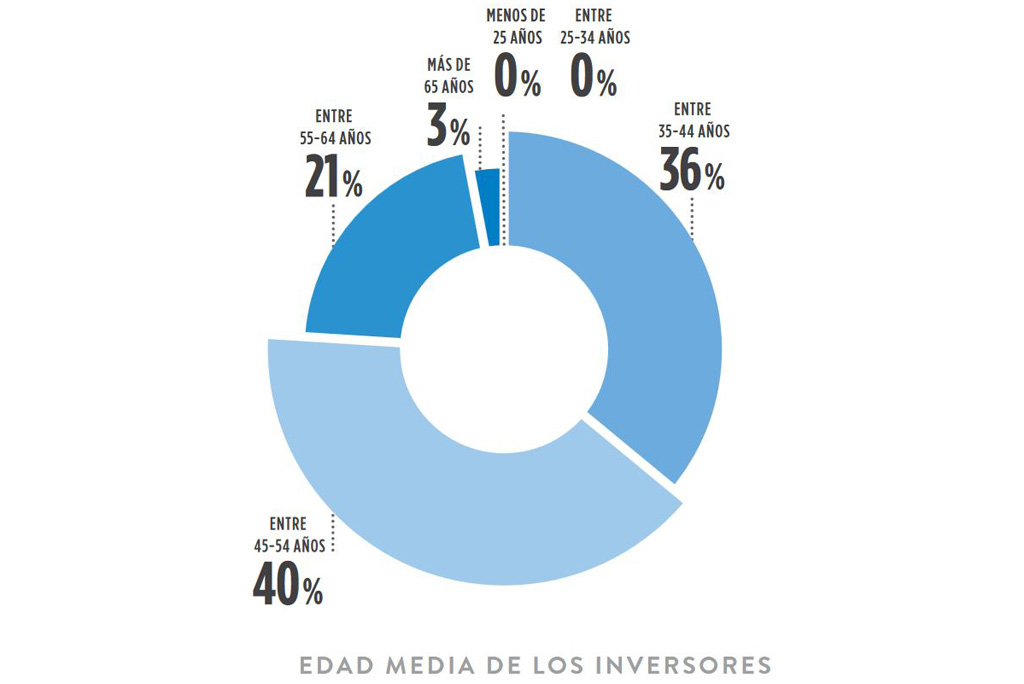
IESE Insight
Who are Spain's business angels and what do they like?
More professional and experienced — this is the latest profile of Spain's business angels, according to the 2018 report by AEBAN, the Spanish Association of Business Angels. What remains elusive is the presence of women and interest in the social impact of investments.
Spanish business angels are coming of age: they now have more transactions and years of experience behind them. In addition, two out of three previously held high-level managerial roles or launched a startup themselves.
This is the profile sketched by the 2018 report on business angels by professor Juan Roure and Amparo de San José, director of IESE's Business Angels and Family Offices Network.
The third edition of the study highlights that industry knowledge and disruptive technologies are two key elements when it comes to assessing angels' investment opportunities. The social impact of potential investments is not a significant factor (yet).
Also according to the report, the technologies deemed to have the greatest disruptive potential over the coming years are blockchain, other advances related to fintech, and pretty much everything associated with mobility and the connected car.
The research, conducted in collaboration with the Spanish Association of Business Angels (AEBAN for its initials in Spanish), also reveals that just 8 percent of angels are women, as low a number as seen in previous reports.
Profile of the Spanish Business Angel
The typical Spanish business angel is increasingly similar to his counterparts in the United States and in other countries where angel investing has been around much longer. Below are some of his defining characteristics.
- More mature: Three out of four angel investors are between 35 and 54 years old, with an increasing number over 55.
- Longer career: A growing number of angels have more than 15 years' experience, although the percentage who just started investing within the past five years is still above 40 percent.
- More active: 2017 was the most active year yet, with 90 percent of the pool of angel investors making at least one investment in the last calendar year. That was 8 percentage points higher than in the previous report.
- With a more diverse portfolio: The report notes a positive trend in portfolio diversification, with an increasing number of angels holding more than five investments. That said, the majority have between one and five active investments — a manageable number.
- A broader sphere of influence: The classic local investor has made way for a more expansive outlook. The number of investors channeling their funds into just one city in Spain dropped dramatically from 12 to 2 percent, according to the current study.
- Less financing in reach: Only 29 percent of those polled allocated more than 100,000 euros annually to investment in startups — compared to 36 percent for the previous year and 60 percent two years ago. Half allocated funds to increasing their positions in existing investments.
- Interested in ICT: More than half of Spain's business angels are investing in information and communication technology (ICT) and software. Digital businesses and distribution channels are also favored.
- And also in offline startups: Despite the fascination with ICT, more than half of Spanish business angels were also investing in offline startups. And in a quarter of those cases, offline investments made up at least half of their investment portfolio.
- With higher valuations: The average valuation of seed and startup projects funded climbed to 2.5 million euros, compared to 912,000 euros in the previous year.
- Seeking company: Business angels prefer not to invest alone. Rather, they invest jointly with other angels, work with VC funding or via family offices.
- And trusted sources: When it comes to receiving new projects, angels say they trust, above all, their friends and partners (26 percent) and their networks of business angels (25 percent).
- Slower to disinvest: The percentage of interviewees who had not yet cashed in on investments was 64 percent in 2017, compared to 62 percent the year before. Of those 2017 exits, about 60 percent were positive, with gains — a 5 percentage point increase over 2016.

Methodology, Very Briefly
This report is based on 172 valid responses to an 18-question questionnaire sent to a representative group of active angel investors in Spain via AEBAN networks and associations.
